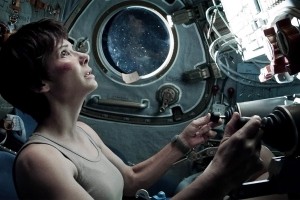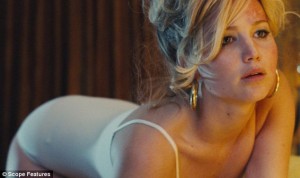Top Ten? Worst Ten? Ugly-But-Brilliant Ten? I don’t know. Like…why?
There’s more than one way to sum up a year. I should start this off by saying that, contrary to what some may say, this was one of the better overall years for moving pictures and I wasn’t expecting a whole lot, given the way episodic TV has been routinely eating cinema’s gourmet lunch for at least a decade. With TV having one of its more mediocre fall seasons in decades, it was inevitable that the movies would get better at about the same time.
But I don’t need to give you a list to tell you that. There are many more of these lists to argue with from people who are even busier (if not smarter) than I am. What I prefer to submit is a potpourri of impressions, observations and pronouncements that will give you a general idea of how I reacted to the movies I saw this year. I’m not fond of the role of critic-as-magistrate (which may explain partly why no one’s now paying me to do it.) I like to think about what I’ve seen and talk it over with others. Don’t you? I’ve already rambled about 12 Years a Slave under what one would call a separate cover. And you can probably figure out what I liked a lot from what you see when you scroll down.
One other thing to say at the outset: Women will likely dominate the forthcoming discourse, but that’s because women gave me more to talk and think about in the dark this year than men. Or children. Or aliens. I’m not necessarily making a point here. Just saying…
The Incredible Shrinking Bullock
Because movie reviewers tend to a.) be pressed for time and/or lazy and b.) not take science-fiction all that seriously as a literary genre, it was inevitable that most of the comparisons they made to Gravity, positively, negatively or otherwise, were to other “in-space-no-one-can-hear-you-scream” movies as 2001: A Space Odyssey and Alien. These aren’t inept or in-apt analogies, given all the heavy-breathing spacesuits floating and crashing through all three movies. They just seemed too obvious. The first movie I thought of as I tossed my 3D glasses in the bin outside Gravity’s screening room was The Incredible Shrinking Man, whose visual effects wouldn’t make anybody gasp now, but were pretty cutting-edge for 1957. Both that Jack Arnold classic (which holds up better than you’d think) and Gravity have protagonists forced to deal with overpowering, inexplicable forces squeezing them in tighter spaces and erasing their options for survival. The telling difference (maybe I’d better flash SPOILER ALERT here) comes at the end when, though both heroes are literally stripped down to almost nothing, Shrinking Man somehow feels larger and more consequential as a human being despite his rapidly-diminishing state while astronaut Ryan Stone, though out of immediate danger, staggers off into a world that somehow feels bigger than she is. And this, you ask, is significant because…? Think of the difference in calendar years: In 1957, we integrated Little Rock’s Central High and, weeks later, Russia launched a beeping toy into orbit. This year, as I write this, there are barely enough astronauts working on Christmas Day to patch up an ailing International Space Station. And don’t even ask how voting rights did in the High Court a few months ago. We’re a lot better at special effects, but as for the rest…As I say, think about it.
Movie Critics of the Year
I only this year discovered the HISHE Network on YouTube and I have now become their stalker, looming at their door in anticipation of their next animated shot at a studio franchise. (No Desolation of Smaug, yet? No Catching Fire? You guys slacking or what? I’ve got other things to not do, OK?) The acronym, BTW, stands for How It Should Have Ended and, as you wits have likely discerned, the site’s proprietors do their own version of a blockbuster’s ending that makes you laugh and often makes more sense than the “real” thing. Because the guys and gals who work the controls of this site are knowledgeable fans of these genres, their send-ups are mostly affectionate. And it’s this admirable deficiency of snark that only magnifies their impact. It’s like having emissaries of Geek Nation sending out dispatches to the major studios and telling them, in essence, “We love this stuff, but we’re not idiots!”
Meh Dancing, Amazing Dance
I may be biased in favor of Frances Ha over other Noah Baumbach movies (most of which I’ve liked) because the title character’s struggle to make it as a modern dancer in post-Millennial New York City hits close to home these days. Also, because I’ve been exposed to different forms of choreography, I tend to see the movie as a kind of extended dance piece. Not that Greta Gerwig’s actual dancing is anything special. (It isn’t.) But I love the way she moves throughout this movie whether she’s leaping for the hell of it through Chinatown to David Bowie’s “Modern Love” or trudging warily along Parisian streets to Hot Chocolate’s “Every 1’s a Winner.” That’s what made me happy about this movie, which is something audiences and critics didn’t expect from a Noah Baumbach movie. Maybe he needed the dancing element to take the weight off. Maybe he needs to do it some more.
And the Oscar Wont (But Should) Go To….
It’s still early but I’m not hearing a lot of people throwing around Adele Exarchopopolos’ name as an Oscar prospect despite her sharing a Palme d’Or at Cannes and winning a Los Angeles Film Critics Association prize for Best Actress. Nothing whatsoever from the Golden Globes, even though she is every bit as riveting and dominant a presence in her movie as Sandra Bullock and Cate Blanchet are in theirs. The first and, often, last things people think of when they think of Blue is the Warmest Color are its NC-17 lesbian sex scenes. As lyrically enticing and obliquely suggestive as the movie’s English-language title may be, the literal translation of its French title, “The Life of Adele,” tells you everything there is to know about the story – which, prosaic as it sounds, is of a young woman’s education; sensual, yes, but also emotional and intuitive. She begins the narrative as a live wire who’s shy, moist and voracious at the same time. She comes out the other end, feeling…well, at the very least, drier. Sex may be explicit in Blue is the Warmest Color, but personality is not. And the beauty of Exarchopopolus’ performance is the way she instinctively gearshifts her character’s sensitivity, allowing us to infer what’s going on in her head while keeping us engaged with the unguarded emissions from her heart. Exarchopopolus will likely acquire greater dimension and skill as an actress. But I doubt she’ll ever again deliver anything as poignantly raw as this, and she at least should get something nice from Hollywood for her trouble.
And speaking of 20-something actresses…
Our Brando
Squares and aesthetes may have perfectly good reasons for decrying Jennifer Lawrence’s I’m-such-a-goofball talk-show appearances with their haphazard disclosures of butt-plugs and other adorable lapses in decorum. But I think these fluffernutter turns deepen her mystique more than shatter it. Public appearances are as much a performer’s art as screen acting and Lawrence is as foxily good at both playing to and subverting the hoary hype machine as she is at withholding her characters’ secrets in movies. Whether on the small or big screen, Lawrence keeps you on-edge. On the small-screen, you don’t quite know where her mouth is going next; on the big-screen, you don’t know what her face is going to do next. In neither case do these impulses feel calculated, though Lawrence is sure as hell is smart enough to know how to play both games better than anybody you can name at the moment. And that’s the real mystery: How does she know? How does any 23-year-old have the poise, the self-possession, the inner power to carry the multimillion-dollar tent pole that is The Hunger Games trilogy playing a teenage badass while simultaneously putting out back-to-back dynamo turns for David O. Russell as emotionally damaged older women? One imagines a similar frisson for audiences a half-century ago when Marlon Brando kept topping their expectations in movie after movie. The only difference is that Brando could never bring himself to create a user-friendly public persona the way Lawrence can. The more he ran away from celebrity’s power to diminish his artistry, the worse things got for him whereas Lawrence doesn’t seem to give a shit. She’s taking charge of her celebrity in ways that previous generations of actors can only envy and such confidence could help her dominate her era of movie acting as Brando, Nicholson or any male icon ever did. J-Law: Our Brando AND Our Cary Grant? Is that so hard to imagine? Forget the shticks with Conan and Dave. Watch the movies again and get back to me.
I haven’t seen this movie come up in anybody’s Ten-Best Lists.
Or this one either.
Finally, my three four five favorite lines quotes from 2013 movies:
“I feel like you’re breathing helium and I’m breathing oxygen.”
—Before Sunset
“Everything is not everything. There’s more.”
—Computer Chess
“When you’re in the middle of a story, it isn’t a story at all but rather a confusion, a dark roaring, a blindness, a wreckage of shattered glass and splintered wood, like a house in a whirlwind or else a boat crushed by the icebergs or swept over the rapids, and all aboard are powerless to stop it. It’s only afterwards that it becomes anything like a story at all, when you’re telling it to yourself or someone else.”
—Stories We Tell
“We’re all on the brink of despair, all we can do is look each other in the face, keep each other company, joke a little… Don’t you agree?”
—The Great Beauty
“Welcome to Heaven, mothafuckas!”
—This is The End





